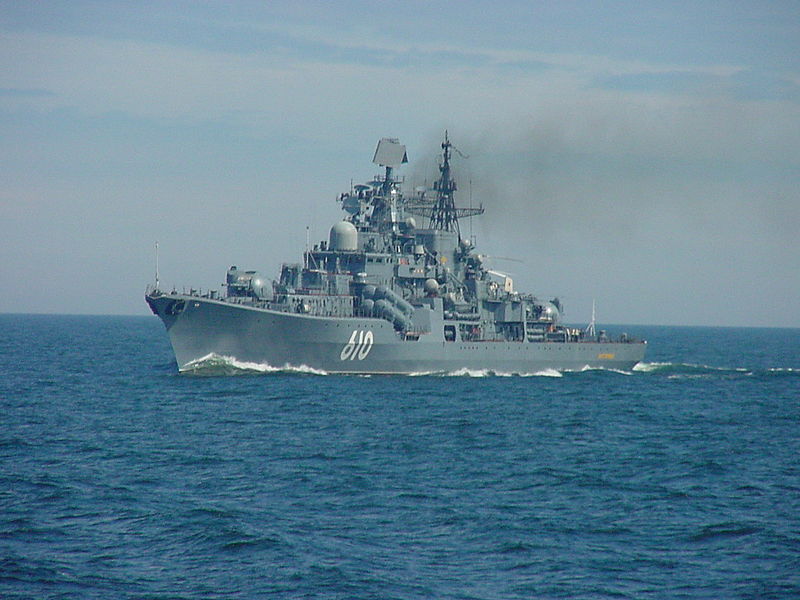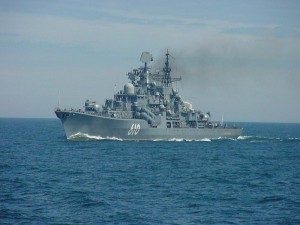Russia’s game in the Baltic Sea region: A Polish perspective


By Justyna Gotkowska
Russian military activity in the Baltic Sea region has been increasing since 2008. After the annexation of Crimea, the trend has become more noticeable. NATO and the non-aligned countries in the region, Sweden and Finland, have confirmed that new patterns of provocative behaviour are emerging. Russia’s more confrontational actions include violations of national airspace, an increasing number of military exercises based on aggressive scenarios, mock bombing raids reaching far beyond the Baltic Sea region, and harassment of planes and vessels in international airspace and waters. Other provocative moves include the underwater activity off the Swedish coast in November and the abduction of an Estonian intelligence officer in September. How should this activity be perceived in the context of the Russian-Ukrainian conflict?
Moscow’s primary goal is to subdue the countries of the post-Soviet space politically, militarily, and economically by incorporating them into Russian-led integration projects such as the Eurasian Economic Union. Since Ukraine is a key country in the region, Moscow cannot allow it to take a pro-Western course. Instead, Russia will further destabilise Ukraine, waiting for Kyiv to change course when the deteriorating political and economic situation becomes too much to bear.
But Moscow’s strategic goals extend beyond “the near abroad”. Russia aims to challenge the post-Cold War order and to set up new rules for European security architecture and European cooperation with Russia. Its goals are to limit the United States’ influence in Europe, to undermine NATO, and to weaken the European Union so as to get a new deal with major European countries on Russian terms. The Kremlin is pushing for the de facto political, military, and economic Finlandisation of the countries in Central Europe and the Baltics, so as to force them to pay more attention to Moscow’s interests. Given its economic and demographic weakness, Russia sees this as the only way that it can maintain its position as one of the world’s leading powers.
What should we expect?
After the conflict in Ukraine, Russian has targeted European countries using both non-military and military means. Military shows of force demonstrate Russia’s political will and military capabilities in the Baltic Sea region and test European military readiness and political reactions. Along with these military actions, Russia has stepped up its lobbying, made more use of economic and energy instruments, and conducted propaganda campaigns.
In the Baltic states, Russia’s goal is to undermine local trust in NATO’s collective defence, to destabilise internal politics, and ultimately to cause the countries to give in to Russian interests. In Sweden and Finland, Russia’s aim is to politically and militarily “neutralise” the two countries – that is, to stop them from joining or cooperating with NATO. Russia’s overarching goal is to intimidate the people and convince both elites and societies that it is better to compromise with Russia than to risk a state of permanent instability or even an open military conflict. Moscow wants to make the West feel threatened, as was very well illustrated by the title of the Valdai Club meeting in October 2014: “The World Order: New Rules or No Rules?”.
One rationale behind Russia’s behaviour is the relative weakness of the West and the chance that Russia perceives to exploit this weakness. In the US, Russia sees decreasing military capabilities and a declining political will towards engagements abroad. In Europe, Moscow notes the political and economic crisis, the divisions between the EU member states, the decline in defence budgets, and the unwillingness of postmodern societies to face up to conflict.
In light of the ongoing crisis in Ukraine, Russia’s internal political motivations are also becoming more important. The Russian economy is deteriorating due to falling oil prices and the failure to implement structural reforms, exacerbated by the EU’s sanctions. This is challenging the existing social deal in Russia: relative prosperity from oil and gas revenues in exchange for power for the ruling elites. Faced with possible social unrest, the Kremlin is consolidating Russian society against a common enemy (the West) and deploying extensive propaganda to revive national sentiments about Russia’s great power status.
The coming years, therefore, may be an increasingly uncertain and unstable time in the Baltic Sea region and in Russia’s relations with the West. The big question is whether the Kremlin deems it necessary to go even further in its rhetoric and actions against the West by provoking a crisis in the Baltic Sea region. The aim would be to divert the attention of ordinary Russians from the worsening internal situation and to force the West to compromise over the sovereignty of its members and its collective defence and solidarity principles out of fear of open war with Russia.
How should Russia be counteracted?
Russia’s aggressive behaviour must be met with a coherent long-term Western strategy. As long as Russian behaviour in Ukraine does not change, the EU should stick to its sanctions. NATO should implement the decisions taken during the Newport Summit in September 2014, which were intended to show firmness in defending member states on the alliance’s eastern flank, both by ensuring continuous military presence in the region and by establishing the Very High Readiness Joint Task Force.
The countries in the Baltic Sea region should show readiness to defend themselves both against military threats and non-military challenges such as information warfare, social unrest, terrorist attacks, cyber attacks, and so on. If the Kremlin senses a lack of will or emerging divisions within a country, it will try to exploit them. Therefore, the key issue is to prevent Moscow from feeling that the West is frightened by increasingly provocative Russian behaviour and to show that the cornerstones of Europe’s political, security, and economic architecture are not up for negotiation. It is especially important that this is understood by the EU’s biggest countries, and particularly Germany, the powers that Moscow views as the most likely to make compromises in response to Russian pressure and to strike a new Russian-European deal.
Justyna Gotkowska is project coordinator of the Security and Defence in Northern Europe Project at the Centre for Eastern Studies (OSW), Poland.




